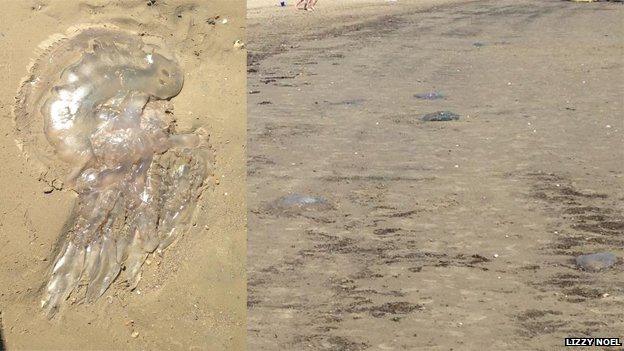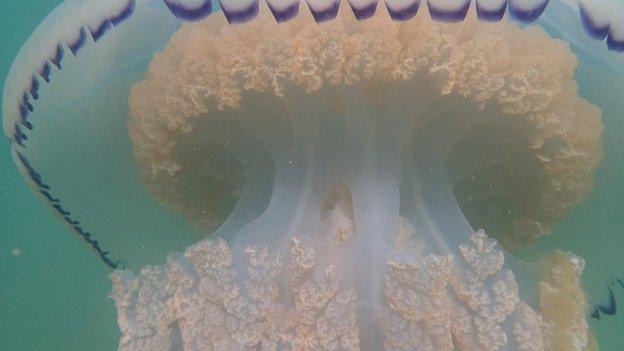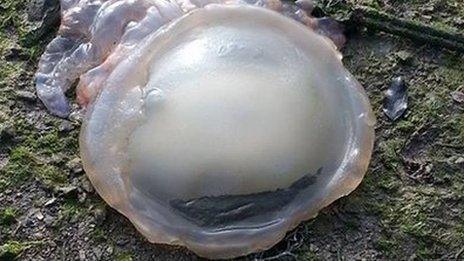Hundreds of jellyfish wash up on Weymouth beach
- Published

The barrel jellyfish stings are not powerful enough to harm humans
Hundreds of dead jellyfish the size of dustbin lids have washed up on Weymouth beach.
The warm weather has been blamed for the deluge of barrel jellyfish on the Dorset coastline in recent weeks.
Weymouth's sea life park said it was an unusual incident for the area, with very few reported sightings since the early 2000s.
Experts say their stings are not powerful enough to harm humans, but people are advised not to touch them.
The Sea Life Centre said the large amount of jellyfish could be because there is more plankton around in warmer waters, and strong winds can then sweep them into the shallows.
A centre spokeswoman said they "were getting washed up in their hundreds".
The barrel jellyfish are not severely poisonous, with people feeling something akin to a nettle sting when touched.
Dead jellyfish can still sting if touched.

A barrel of jellyfish facts
The scientific name for the barrel species is rhizostoma which means "root pores"
The solid, large jellyfish can be up to 100cm in diameter and weights of 35kg have been recorded
It has no tentacles but eight thick frilled arms
It is a favourite food of the leatherback turtle
Source: Marine Conservation Society

- Published14 April 2015

- Published20 May 2014
